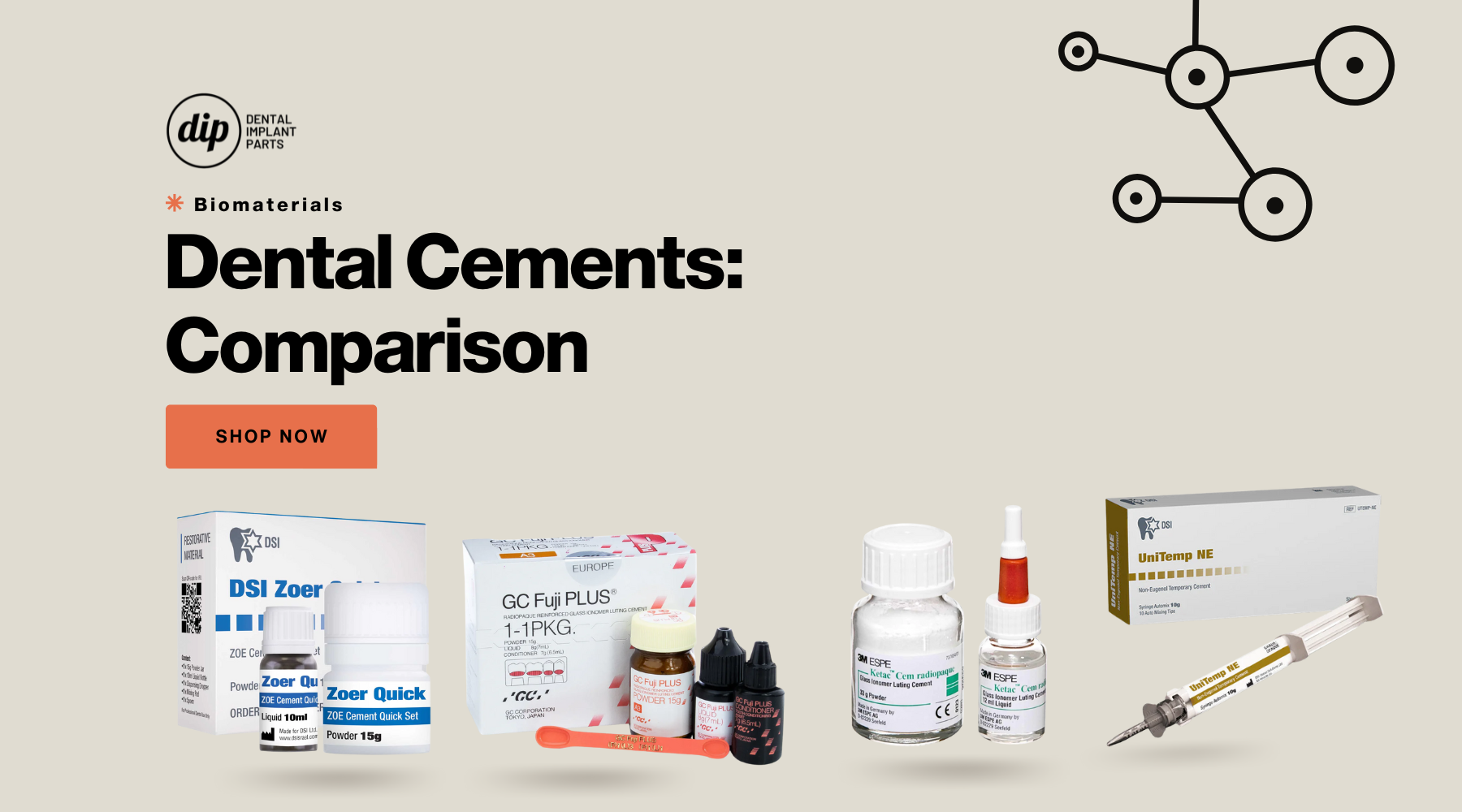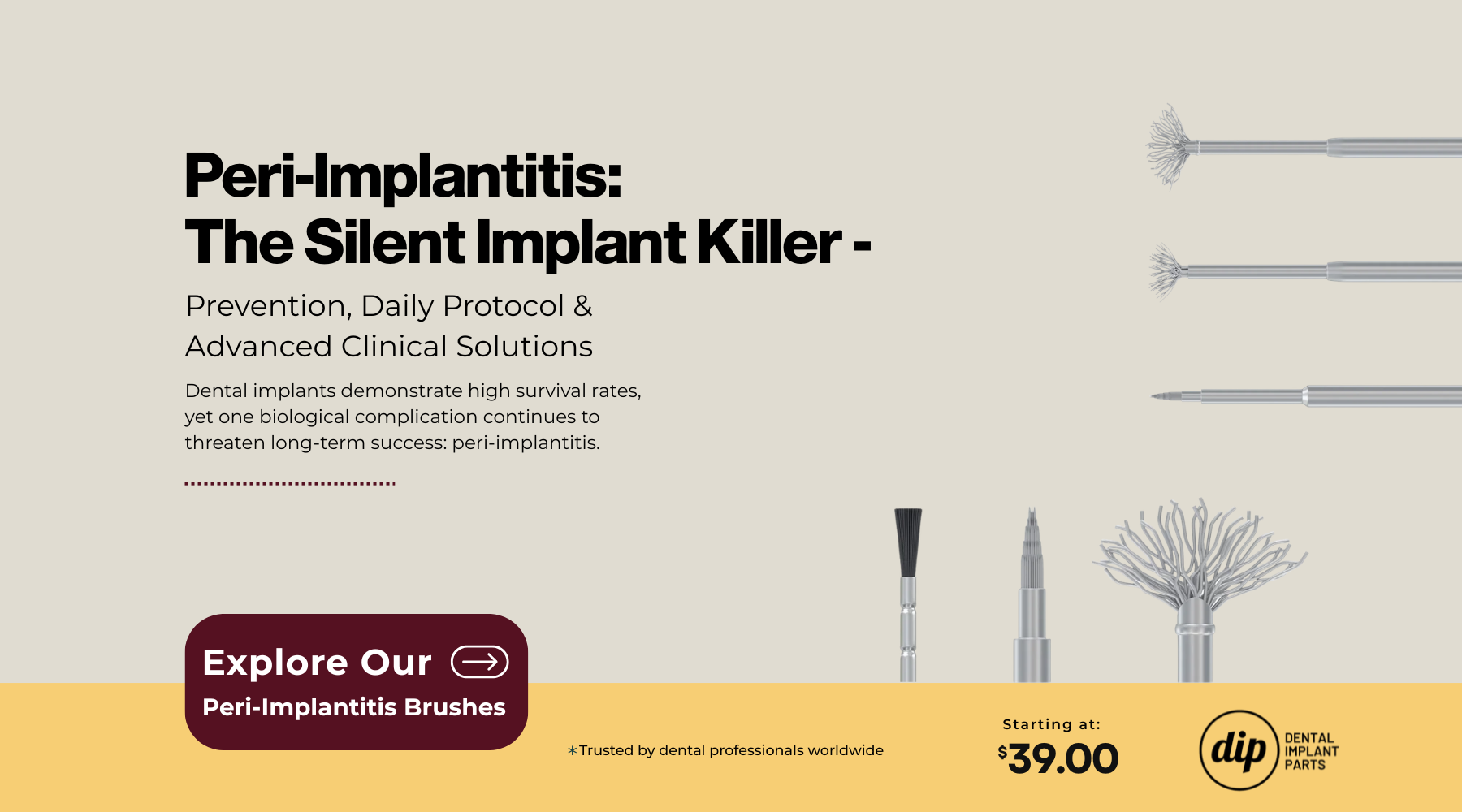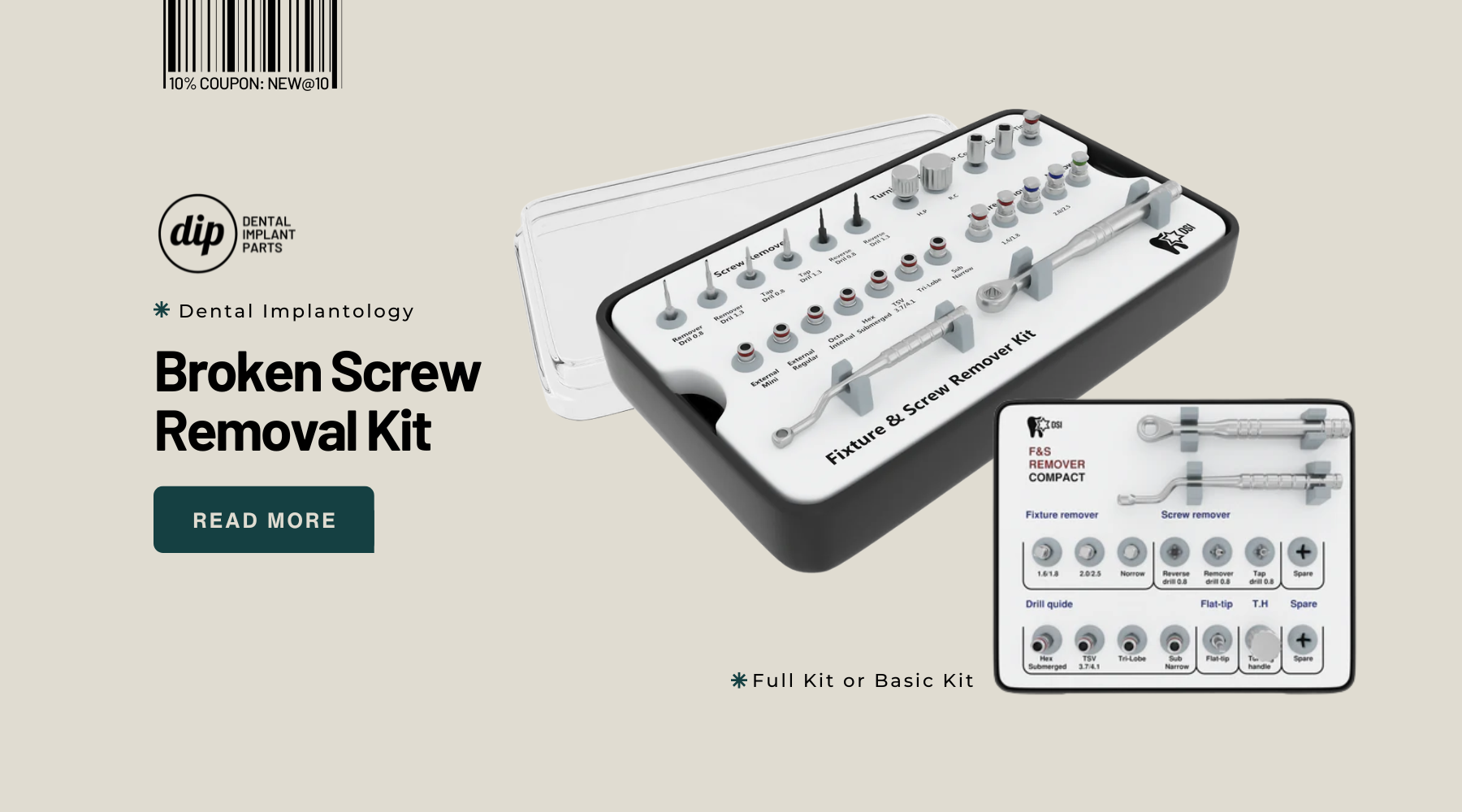Dental cements are essential for a wide range of procedures, from temporary crown placement to final cementation of all-ceramic restorations. At Dip Dental, we offer a carefully curated selection of high-quality cements to cover the full spectrum of clinical needs. This guide provides a detailed comparison between the different cement types available on our site, helping dentists choose the right solution for each case.
Cement Categories at a Glance
| Product Name | Cement Type | Indications | Key Advantages | Price |
|---|---|---|---|---|
| OrthoGlue Cement | Orthodontic band and bracket cement | Cementation of bands and brackets | Easy handling, moisture tolerant, sets quickly | $39.90 |
| Temp Cement NE | Temporary non-eugenol cement | Provisional crown and bridge placement | No eugenol, ideal under resin-based materials | $29.00 |
| Temp Cement E | Temporary cement with eugenol | Temporary crowns and bridges | Soothing effect on pulp, easy removal | $29.00 |
| Glass Ionomer Cement (GIC) | Permanent GIC luting cement | Crowns, bridges, inlays, onlays | High fluoride release, strong bond to dentin | $39.00 |
| Resin Cement | Permanent dual-cure resin cement | All-ceramic crowns, zirconia, veneers | High strength, excellent aesthetics, adhesive | $69.00 |
| Zinc Phosphate Cement | Traditional permanent cement | Crowns, bridges, long-term temporaries | Time-tested, rigid retention, cost-effective | $34.00 |
Detailed Product Comparison
1. Temporary Cements
Temporary cements are essential for provisional restorations, ensuring secure placement while allowing for easy removal later.
-
-
Type: Non-eugenol
-
Use: Recommended when bonding with resin-based permanent cements to avoid interference with polymerization.
-
Key Benefit: Compatibility with adhesive systems.
-
Price: $29.00
-
-
Temp Cement E
-
Type: Eugenol-based
-
Use: Ideal for short-term temporaries where soothing effect on pulp is desirable.
-
Key Benefit: Palliative effect; reduces post-op sensitivity.
-
Price: $29.00
-
When to choose which:
Use non-eugenol if you're following up with resin-based permanent cement.
Use eugenol for short-term comfort, especially in sensitive cases.
2. Permanent Cements
Glass Ionomer Cement (GIC)
-
Indications: Cementation of crowns, bridges, posts, and orthodontic appliances.
-
Advantages:
-
Fluoride release
-
Bonds chemically to enamel and dentin
-
Easy cleanup
-
-
Price: $39.00
Ideal for routine cementation where fluoride protection is beneficial and where maximum esthetics are not critical.
Resin Cement (Dual-Cure)
-
Indications: Veneers, all-ceramic crowns, zirconia restorations, posts.
-
Advantages:
-
Excellent mechanical strength
-
Adhesive bond to dentin, enamel, ceramic, and metal
-
Dual-cure for deep restorations
-
-
Price: $69.00
Best choice for high-aesthetic restorations or when strong, durable adhesion is required.
Zinc Phosphate Cement
-
Indications: Crowns, bridges, long-term temporaries.
-
Advantages:
-
Time-tested reliability
-
Excellent marginal seal
-
Economical
-
-
Price: $34.00
A solid choice for clinicians who prefer traditional materials with predictable performance.
3. Orthodontic Cement
OrthoGlue Cement
-
Type: Band and bracket cement
-
Use: Direct bonding of orthodontic appliances
-
Advantages:
-
Fast setting
-
Moisture-tolerant
-
Long working time
-
-
Price: $39.90
Formulated specifically for orthodontic use, providing strong adhesion and quick curing even in suboptimal conditions.
Clinical Application Matrix
| Restoration Type | Recommended Cement |
|---|---|
| Temporary crowns (short term) | Temp Cement E |
| Temporary crowns (long term, resin follow-up) | Temp Cement NE |
| Metal crowns and bridges | GIC or Zinc Phosphate |
| Zirconia and ceramic crowns | Resin Cement |
| Veneers and inlays | Resin Cement |
| Orthodontic brackets | OrthoGlue Cement |
Conclusion: How to Choose the Right Cement
The right cement can improve clinical efficiency, reduce post-op sensitivity, and ensure long-term success. Here’s a quick guide:
-
For temporary solutions, choose between eugenol and non-eugenol based on follow-up plans.
-
For routine cementation, glass ionomer offers fluoride protection and easy handling.
-
For high-strength and esthetic restorations, resin cement provides superior bonding.
-
For cost-effective permanent solutions, zinc phosphate remains a reliable workhorse.
-
For orthodontic needs, OrthoGlue Cement ensures firm retention and fast workflow.
All options are available for fast delivery at Dip Dental – Dental Cements Collection, with competitive prices and professional-grade quality.




